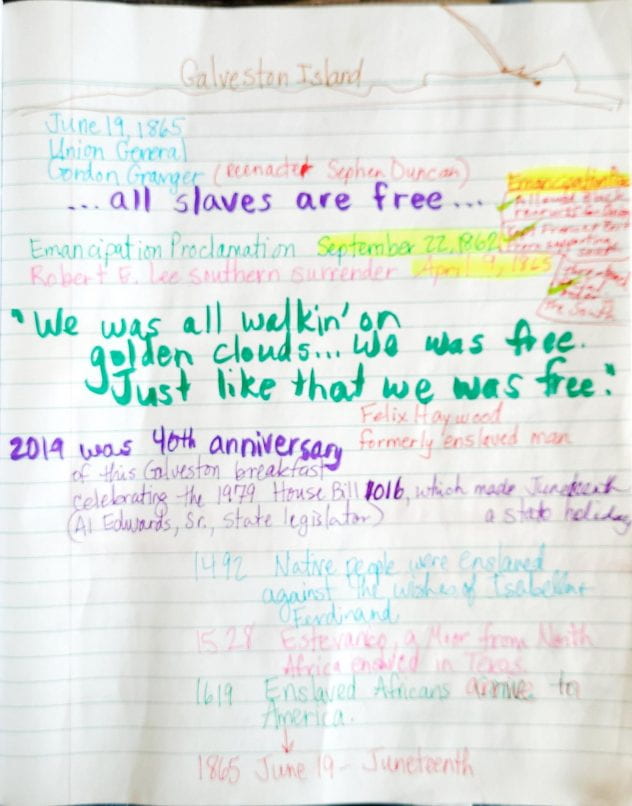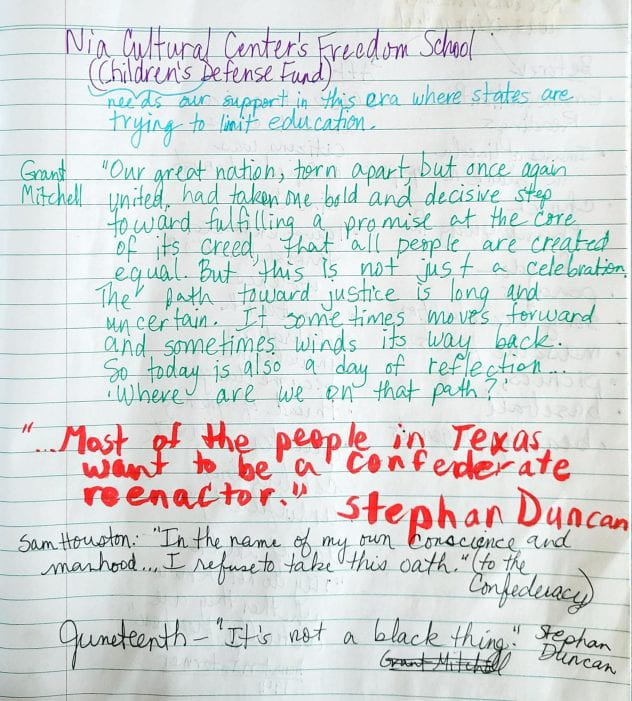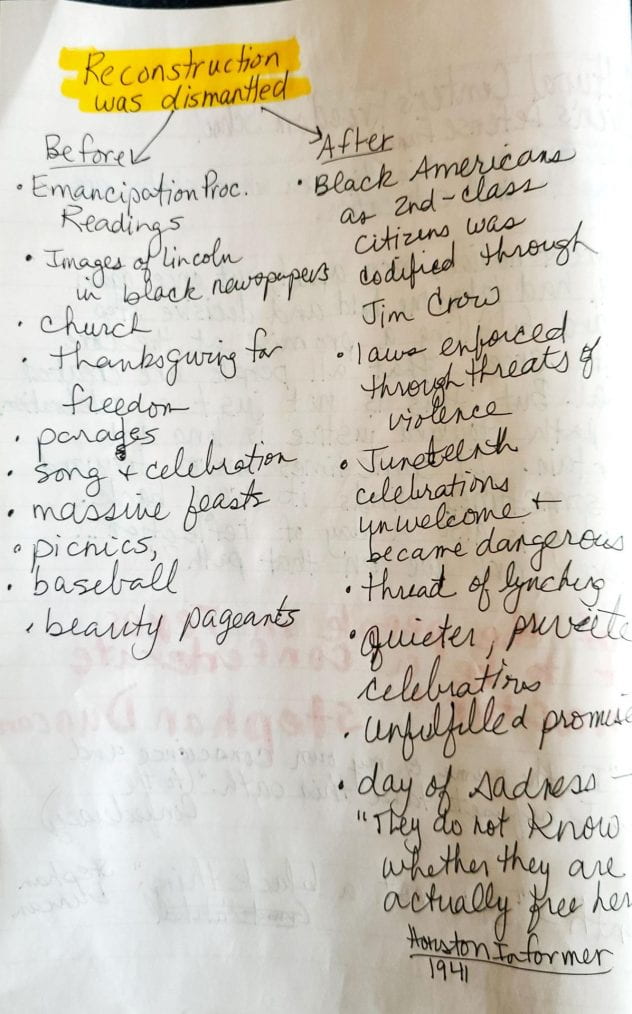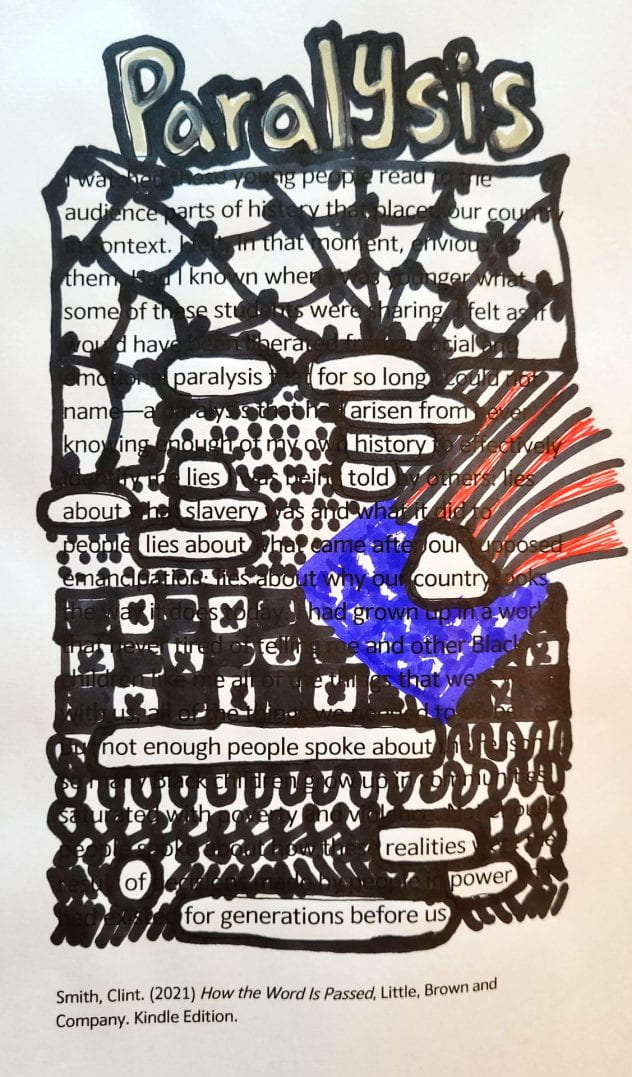This chapter about the Juneteenth celebration at Galveston Island has helped me walk further along a new path of truth in America’s history. This passage, written by a young black man, also speaks to me, an older white woman, who learned history in a similar way with white-washing and lies to hide the deeper truths of white supremacy that people didn’t want to say aloud. We are also seeing it in our lived day-to-day history in this, the 21st century.
I watched these young people read to the audience parts of history that placed our country in context. I felt, in that moment, envious of them. Had I known when I was younger what some of these students were sharing, I felt as if I would have been liberated from a social and emotional paralysis that for so long I could not name—a paralysis that had arisen from never knowing enough of my own history to effectively identify the lies I was being told by others: lies about what slavery was and what it did to people; lies about what came after our supposed emancipation; lies about why our country looks the way it does today. I had grown up in a world that never tired of telling me and other Black children like me all of the things that were wrong with us, all of the things we needed to do better. But not enough people spoke about the reason so many Black children grow up in communities saturated with poverty and violence. Not enough people spoke about how these realities were the result of decisions made by people in power and had existed for generations before us.
Smith, Clint. (2021) How the Word Is Passed, Little, Brown and Company. Kindle Edition.
Paralysis
For so long
arisen from history
lies told about slavery
lies about our country
Not enough people
spoke about
realities of power
for generations before us
I’m trying to find a balance in how to read these rich chapters. For the first few chapters, I highlighted things I wanted to remember on my Kindle. This time I took notes in a journal. After three pages of notes and two poems, I was still only half finished with the chapter. Hmmm…I’ll keep trying.




Thanks for this inspiring post and poem. I stopped reading to give myself a break and read something else. I should get back to it. Clint Smith is a powerful writer. His book is important.
Thank you, Margaret. This book is one I have to finish. Clint Smith is amazing. I love the ease at which he leads us through the primary sources. How can we argue? If someone is honest, they have to see that we are not receiving a clear history of America. (I’m not doing some of my summer activities, like I am missing out on my teacher’s write prompts from Kate Messner, sadly! )